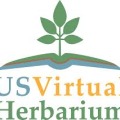Specimens provide enormous economic and scientific returns to society and are irreplaceable resources that must be preserved for future generations.
American Society of Plant Taxonomists (ASPT), http://www.aspt.net/
US herbaria contain over 70 million specimens of plants, fungi, and algae. The specimens come from many different countries although most are from the US. Together they are an enormous source of information both about today’s species and, because some are fossils, of species that are now extinct.
US Virtual Herbarium Project, http://www.usvhproject.org/
Beyond their scientific importance, herbarium collections offer many benefits to society by providing data or reference materials for critical endeavors such as agriculture, human health, biosecurity, forensics, control of invasive species, conservation biology, natural resources, and land management.
ASB, Association of Southeastern Biologists
http://www.sebiologists.org/
The American Society of Plant Taxonomists affirms the crucial role of natural history collections, and of plant collections in particular, in research, teaching, and public outreach.
ASPT, American Society of Plant Taxonomists
http://mailman.yale.edu/pipermail/nhcoll-l/2004-August/001608.html


 (605) 688-6121
(605) 688-6121





